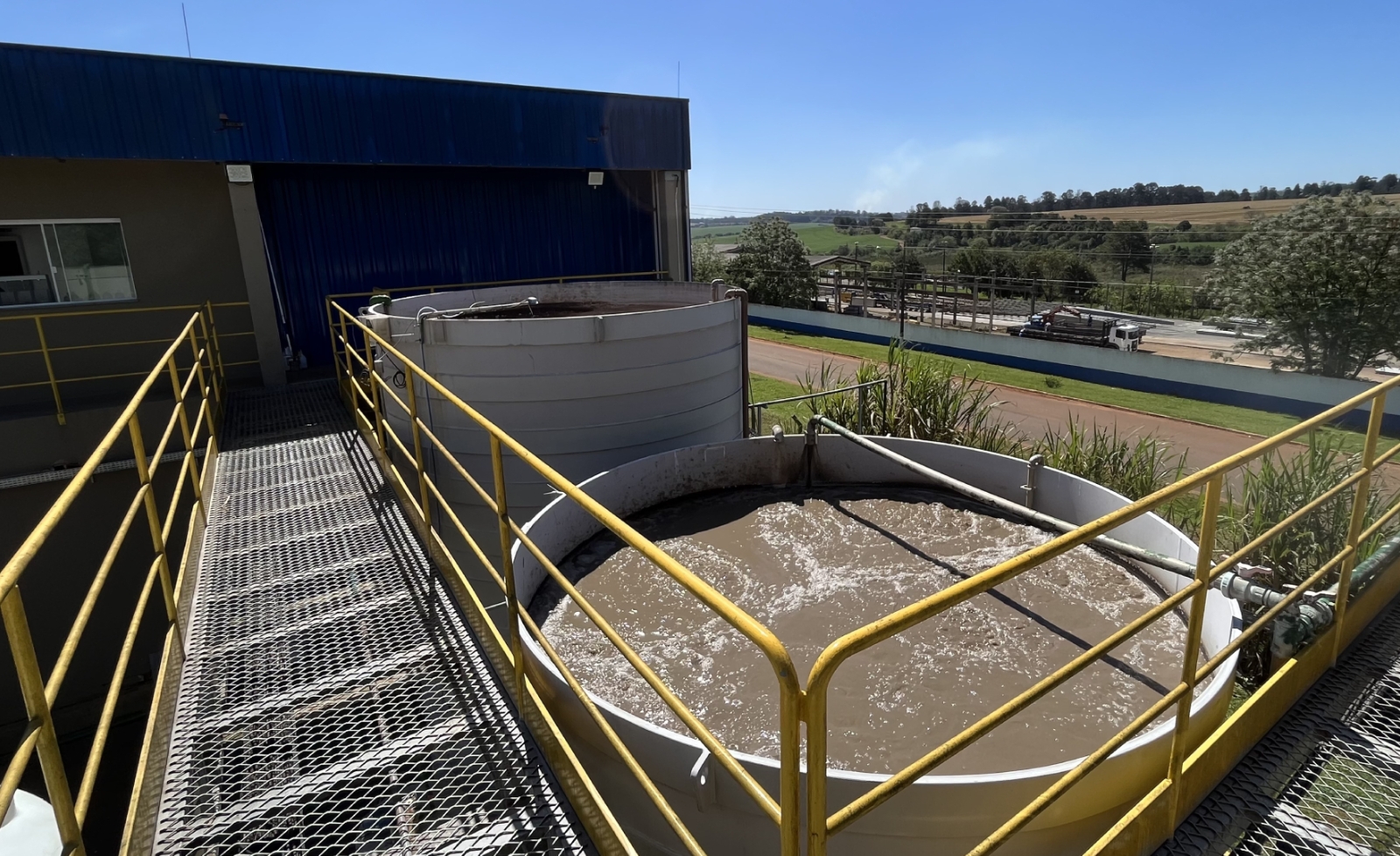
Reducing waste is part of a set of actions that demonstrate the company's commitment to the environment. Investment is ongoing to minimize environmental impacts and reinforce sustainable Agribusiness.
High technology can be used to benefit the environment in the Agro market, yes. And a Brazilian multinational has been celebrating good results in this regard with its effluent treatment. In Ponta Grossa, Paraná, Agrocete has a facility that houses the Effluent Treatment Station, where approximately 350,000 liters of liquid waste are treated monthly. This volume is quite significant considering the possibility of reusing these waste materials.
According to Caique da Silva, an environmental specialist at Agrocete, the waste treatment center has been in operation since 2014 and was expanded in 2020. Recently, the facility's performance was awarded as the best work in the thematic area of Environmental Engineering and Clean Technologies at the III Web National Chemical Engineering Meeting. "Here at the Agrocete factory, we have two effluent treatment stations, one for receiving and treating only biological effluents, and the other for physical-chemical effluents only. In the case of biological effluents, the goal is to treat the effluent and reuse it in the production of foliar fertilizers," explains the environmental specialist.
The treatment process is very meticulous. The step-by-step process involves receiving the effluents in lift stations, sending them to an equalization tank where pH correction and the injection of oxygen occur to maintain continuous agitation. Then comes the main part of the procedure, which is the aeration tank, where biological reactions with organic matter oxidation take place. Next, in the settling tank, the supernatant effluent is separated from the settled biological sludge. After several other procedures, tests are conducted to enable reuse.
"The results for the environment include reduced natural resource consumption, conscious water use, more sustainable production, and a nobler destination for drinking water for human consumption," emphasizes Caique, noting that the company also aligns with the Sustainable Development Goals (SDGs) proposed by the United Nations.
According to Juliana Martins Teixeira de Abreu Pietrobelli, a professor at the Academic Department of Chemical Engineering and coordinator of the Postgraduate Program in Chemical Engineering at the Federal Technological University of Paraná (UTFPR), initiatives like these, in which the company seeks more sustainable technologies, improve processes, and strive to valorize resources and waste, significantly reduce environmental impacts. "Since agribusiness is directly linked to the environment and its production cycle, it is crucial to prioritize strategies that aim to close the product life cycle, using waste as raw materials for new processes and generating a continuous flow of materials and energy," she points out.
Agrocete annually reviews its environmental indicators, according to Andrea de Figueiredo Giroldo, Marketing and Technical Development Director. "The company's proposal is for the environmental aspect to be part of its DNA and business strategy, so that every internal move incorporates the sustainability pillar," she says, commenting that the main challenges for this work are changing products, processes, habits, and mental patterns.
"Consciousness is still a challenge; the extent of our responsibility for sustainability is proportional to the impact we generate and starts with the individual, what I can do today to ensure the future of our generations. Responsibility lies with everyone and cannot be outsourced. It should not only be in speeches but in the daily lives of our lives," concludes the director of the multinational.
About Agrocete:
Founded in 1980, Agrocete is a Brazilian multinational headquartered in Ponta Grossa/PR with units in the United States and Paraguay, internationally recognized in the field of adjuvants, physiological products, biologicals, and nutrition.
Agrocete has the world's largest and most advanced biological inoculants manufacturing plant and is certified by ISO 9001 for management and quality and ISO 14001 for environmental management, as well as Together for Sustainability (TfS), which recognizes safe chemical industry committed to the environment. The company is a pioneer in the production of special fertilizers and inoculants in Brazil and stands out for technological innovation from laboratories to procedures. Proof of this is the establishment of a unit for the development, validation, and testing of innovative products such as bioinputs, biofertilizers, and biostimulants, as well as the Agrocete Academy for employee training.
For more information, visit: www.agrocete.com.br.
